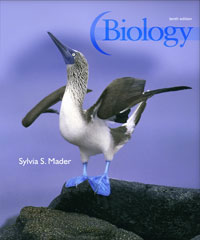1 A) phospholipids B) carbohydrates C) waxes D) nucleic acids 2 A) nonpolar B) hydrophobic C) directed inwards in the bilayer D) All of these 3 A) nucleotides B) proteins C) cholesterol D) glycolipids 4 A) receptor proteins B) cell recognition proteins C) channel proteins D) enzymatic proteins 5 A) phospholipids B) glycoproteins C) steroids D) nucleic acids 6 A) H2 O B) Steroids C) Na+ D) O2 7 A) sugars B) proteins C) water D) oxygen 8 A) 0.01% NaCl B) 0.1% NaCl C) 1% NaCl D) 10% NaCl 9 A) The cell will swell and burst. B) Nothing will occur. C) The central vacuole gains water. D) The cell will shrink or shrivel up. 10 A) normal red blood cells B) red blood cells that burst after being placed in a hypotonic solution C) shrinking of the cytoplasm after a cell is placed in a hypertonic solution D) the loss of turgor pressure in a plant cell 11 A) It requires the expenditure of energy. B) Molecules move from high concentration to low concentration. C) Vacuoles form to move materials. D) All of the above. 12 A) phagocytosis B) receptor-mediated endocytosis C) osmosis D) exocytosis 13 A) diffusing into the cells B) binding a receptor protein in the plasma membranes C) phagocytosis 14 A) gap junctions B) tight junctions C) adhesion junctions 15 A) collagen B) cholesterol C) cellulose D) chromatin 16 A) Carrier proteins are needed. B) It requires the expenditure of energy. C) Molecules move from areas of low concentration to areas of high concentration. D) All of these. 17 A) exocytosis B) facilitated transport C) phagocytosis D) osmosis 18 A) the phospholipids form a single layer around the cell B) the phospholipids form a bilayer around the cell C) there are not enough phospholipids to create a membrane around the cell 19 A) nucleic acids B) monosaccharides C) proteins D) triglycerides 20 A) DNA, RNA B) glycoproteins, glycolipids C) plasma membranes; glycolipids














